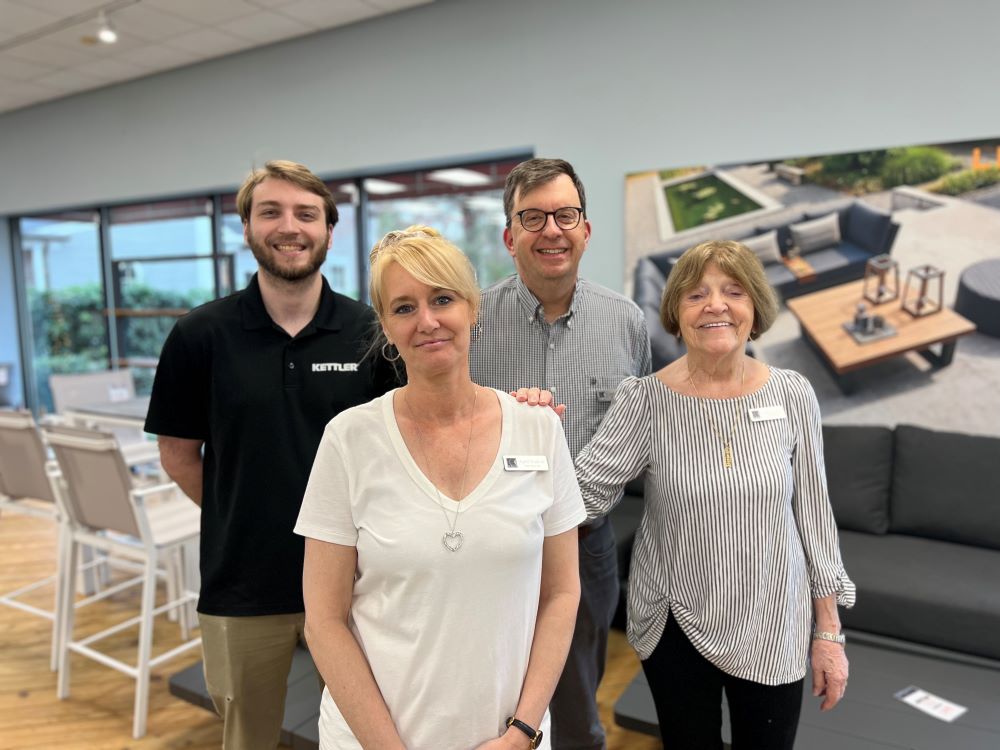Independent sales representatives are the backbone of the home furnishings industry. But without the right knowledge and contacts, building a solid and dedicated independent sales team can be difficult.
Eric Parsons, president of Jensen Outdoor, says that manufacturers essentially live and die by the ability of sales reps or sales rep groups to be able to do what they do.
For those who are having trouble building independent sales teams, he says to look at where their volume is coming from, what product they are already repping, and what they bring to the table.
“We look at what lines they are selling, which retailers they already have a relationship with and which other retailers they are selling to,” Parsons says. “This helps define success. Learn all that you can about what they’re bringing to you.”
John Pinion, Lloyd Flanders’ national sales manager, was an independent sales rep for decades before taking on the role with the manufacturer last year. His advice?
“Don’t just look at how much money they make you — treat them like a family and engage them,” he says. “Make them feel like a part of your organization. I do that with all my reps. We talk about our family lives so much that I know more about them than I do about some of my extended family members.”
Collaboration is a big word for sales reps, he adds, and now that he’s in a manager position that’s become clear on a different level.
“I have to listen to the salespeople and realize that sometimes we have policies that hurt us, so I need to look at how to guide the company,” he says. “And the thing about building a team is, if we didn’t believe in the reps and support them, then all my actions would ring hollow.”
Parsons says creating an environment to succeed is important as well.
“Most reps are paid 100% commission, so when sales are going well they’re going to get more money and pay more attention to you,” Parsons explains. “It’s really about improving their chances of success. We need to have a real open-door policy as far as communication goes. If we work on things internally to make the company better and they don’t know, then all they know is the result. We keep them close.”
Kathleen Ferry is an independent rep who recently transitioned to the role after being a sales manager at Woodline Shade Solutions. She landed at Lloyd Flanders and currently only reps their lines, for now.
When it comes to how to build a rep team, she says communication is the key to any good manufacturer/sales rep relationship.
“If you feel disconnected from the company you’re repping, then you don’t feel as much love for the product,” she says. “Obviously, fair compensation and timely payments are always helpful, but really being a valued partner with your manufacturer is what helps build and keep a strong sales force.”
She also says that manufacturers need to let their reps do their jobs and not micromanage them. “Reps are independent, and therefore they need to work for themselves first and foremost,” she adds.
All three agree that word of mouth is the most powerful tool when it comes to finding sales reps.
“That’s especially true in the rep community,” Ferry says. “ A lot of times manufacturers don’t want to give up reps or they don’t want their reps spread too thin.”
Parsons adds that using reps to find other reps can help build trust between manufacturers and potential reps because there is that mutual connection.
Pinion suggests that manufacturers look through the International Home Furnishings Representatives Association to find sales reps, as the group has thousands of experienced reps open to work.
When looking for reps, remember that relationship and communication between the two parties are key, and the reps must feel supported while also bringing something to the table for the lines the represent.









John Pinion really gets it!!!
John pinion really gets it!!